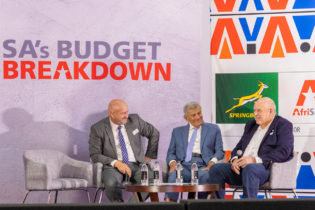The government and its agencies responsible for infrastructure development must finalise tariff schedules, including what consumers will pay for projects, well before their implementation in order to avoid resistance, according to a proposal.
The proposal will form part of a position paper on infrastructure financing that the South African Chamber of Commerce and Industry is finalising and will table at its annual convention next month, CEO Neren Rau said last Friday. The government’s multibillion-rand infrastructure spend over a three-year period partly prompted the chamber to undertake to write the position paper, which also covers tolling such as the Gauteng Freeway Improvement Project’s.The proposal came as rating agency Moody’s hailed Thursday’s Constitutional Court decision in favour of the South African National Roads Agency (Sanral) — setting aside an interim order which put e-tolling on hold. “Government is committing to this during economic times when financing options are constrained … These projects are an imperative and we have to finance them under difficult economic circumstances,” Mr Rau said. He said the position paper would also inform policy on the revenue and financing design of large projects such as the Gauteng freeway project. “Another proposal in the paper is that the benefits of the infrastructure project should be made clear to the public as a means to win public support. This is one thing that we did not do too well regarding the e-toll.”
The paper would also look at how infrastructure programmes have been implemented in other countries. “We are reviewing what has been done all over the world, also looking at electricity and rail infrastructure with a focus on funding models. We also focus on the sound principles one should apply.”
Moody’s said yesterday the Constitutional Court ruling was credit positive for Sanral, as it could now begin collecting e-toll revenues, which are key to servicing the R20bn debt incurred to build the road. “(The) implementation of e-tolls will alleviate Sanral’s cash tension and reduce its dependence on government funds,” Moody’s said. But it noted that the project still awaited a full court review next month. Source: Business Day





